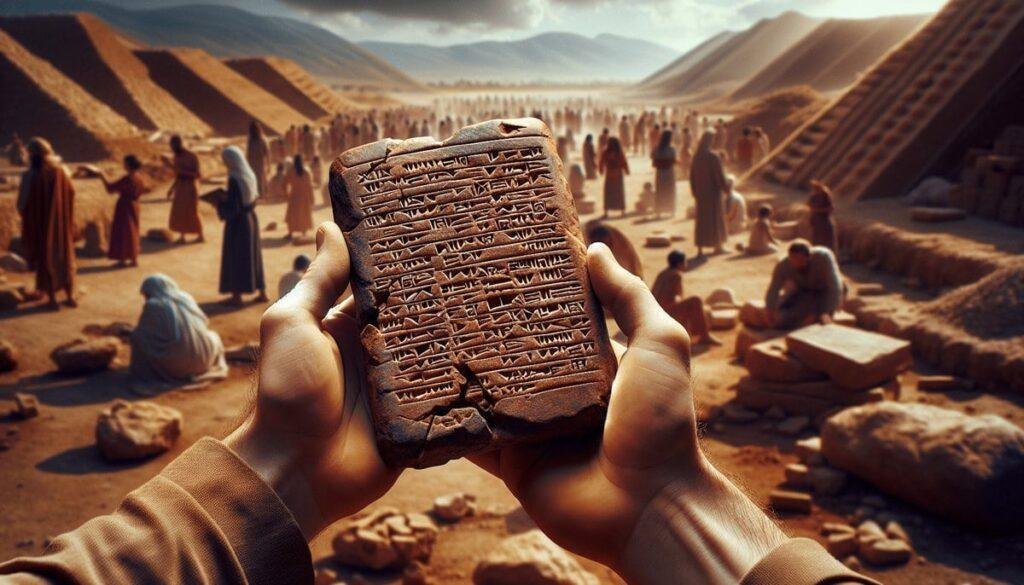Have you ever considered the mysteries that lie beneath ancient stones, waiting to divulge their secrets of the past? Within Jerusalem’s legendary Temple Mount, a chamber has captured the attention of archaeologists, historians, and biblical enthusiasts alike. This article, titled “Discovering the Temple Mount Chamber,” takes you on a professional journey through historical intrigue, archaeological endeavors, and the significant biblical implications of this remarkable site.
Introduction
In the sphere of biblical archaeology, few discoveries ignite as much fascination as ancient chambers uncovered in historically significant locations. Among these, the Temple Mount Chamber stands as a beacon of both historical and spiritual intrigue, emanating whispers of ancient Jerusalem. Through this article, you will explore the origins, features, and modern implications of the Temple Mount Chamber, with a focus on its newly discovered aspects. By engaging with this discovery, you open up pathways to understand its multicultural and religious significance deeply enshrined in history.
Discovery Context
Biblical Reference
The Temple Mount, also known as Har HaBayit in Hebrew, carries immense significance in biblical texts. It is revered as the site of King Solomon’s First Temple, an ancient monument constructed in the 10th century BCE, and later home to the Second Temple. These constructions are described in detail within the Hebrew Bible, lending credence to the Temple Mount’s standing as a key spiritual locus.
Historical Background
Historically, the Temple Mount has been a center of spiritual and political conflict, inhabited variously by Israelites, Romans, Byzantines, and Muslims. The presence of numerous layers of civilization has created a complex archaeological tapestry that reflects its storied past. The recent uncovering of the chamber provides a new chapter in understanding the multifaceted history of this site.
Geographic Location
Situated in the Old City of Jerusalem, the Temple Mount is an elevated platform boasting significant religious structures, including the Dome of the Rock and the Al-Aqsa Mosque. Geographically, its position at the nucleus of Jerusalem pinpoints its undeniable importance as a focal point of biblical history and religious practice.
Recent Findings
Recent archaeological efforts, supported by advanced technology such as ground-penetrating radar and 3D modeling, have led to the discovery of a hidden chamber within the Temple Mount. This chamber, presumed to be undisturbed for millennia, promises insights that could verify ancient biblical narratives or shed light on lesser-known historical episodes.
Archaeological Evidence
Specific Artifacts
In the course of excavation, archaeologists unearthed a spectrum of artifacts that include pottery shards, stone inscriptions, and architectural remnants. These tangible pieces of the past offer a concrete connection to the lives once thriving above.
Dating Methods
Dating methods such as radiocarbon analysis and stratigraphic study have been employed to ascertain the period of the artifacts and structural elements, suggesting timelines that may align with significant biblical events.
Physical Descriptions
The chamber’s physical characteristics—its dimensions, stonework, and design—are being meticulously studied to comprehend its original function and its spatial relationship with known structures on the Temple Mount.
Expert Interpretations
Archaeologists and biblical scholars offer varied interpretations of the chamber’s purpose, ranging from a storage space for temple valuables to a shelter for sacred scriptures. These interpretations, grounded in both tangible evidence and historical context, offer compelling narratives to ponder.
Significance
Biblical Implications
The discovery holds potential implications for biblical history. If the chamber’s dating aligns with specific periods, it could offer corroborative evidence for the narratives depicted in sacred texts, bridging the gap between scripture and archaeological data.
Historical Impact
Beyond biblical importance, the chamber represents a vestige of ancient Jerusalem’s sociopolitical dynamics. The variety of artifacts discovered within may reflect broader cultural exchanges or conflicts, further illuminating the diverse influences that have shaped the city.
Modern Understanding
For modern investigators, the chamber offers a tangible link to past epochs. It fosters a deeper understanding of architectural practices, ceremonial customs, and cultural interactions that defined ancient Jerusalem.
Research Status
Current research continues to focus on detailed analyses and conservation efforts. As excavation progresses, potential exists for more revelations that invite further academic discourse and public interest.
Conclusion
In summary, the Temple Mount Chamber stands as a monumental discovery in biblical archaeology, bridging centuries of historical evolution. This chamber promises to enhance your understanding of ancient Jerusalem, offering new insights and provoking contemplation about the intersecting paths of history and faith. As new information emerges, continue to engage with this enigmatic site, fostering a deeper appreciation for its enduring mysteries and cultural resonance.





